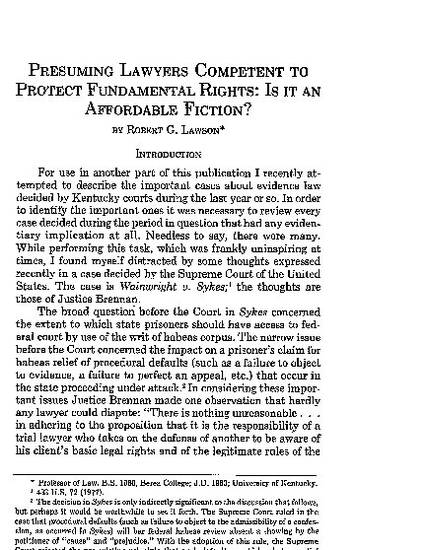
This article explores the ramifications of Wainwright v. Sykes, a case decided before the Supreme Court of the United States in 1977. The broad question before the Court in Sykes concerned the extent to which state prisoners should have access to federal court by use of the writ of habeas corpus. The narrow issue before the Court concerned the impact on a prisoner's claim for habeas relief of procedural defaults (such as a failure to object to evidence, a failure to perfect an appeal, etc.) that occur in the state proceeding under attack. In considering these important issues Justice Brennan made one observation that hardly any lawyer could dispute: “There is nothing unreasonable ... in adhering to the proposition that it is the responsibility of a trial lawyer who takes on the defense of another to be aware of his client's basic legal rights and of the legitimate rules of the forum in which he practices his profession.” In addition Justice Brennan expressed a thought that is certain to generate disagreement, as evidenced by the fact that it captures the essence of his dissent to the majority's decision in the case. He said that “any realistic system of federal habeas corpus jurisdiction must be premised on the reality that the ordinary procedural default is born of the inadvertence, negligence, inexperience, or incompetence of trial counsel.” Taking these thoughts from the Supreme Court, this article discusses the quality of justice being provided in criminal cases prosecuted in Kentucky.

Kentucky Law Journal, Vol. 66, No. 3 (1977-1978), pp. 459-476